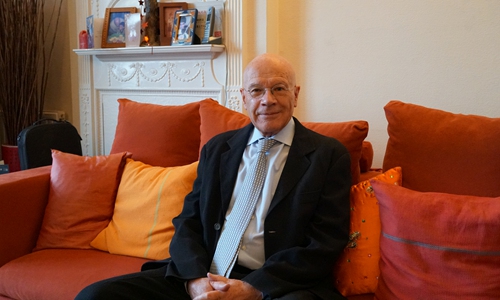Lawrence Summers, former US Treasury Secretary, was interviewed by The Point on how he saw the present state of US-China relations. In this interview, Martin Jacques responds to Summers’s points. Moderated by Liu Xin.
Media Archive
Last year was a year to forget for Hong Kong. For months there was serious unrest and rioting. China is now introducing national security legislation. Will this restore stability? And if it does, will it work? How do the Chinese win the hearts and minds of the Hong Kong population? The attitudes of Hong Kong’s population can only be understood in terms of over 150 years of British colonialism. Part of the problem is that the people are experiencing a profound crisis of identity. Interview with Fu Xiaotian.
From the outset, Covid-19 was highly politicised. The Western media and politicians attacked China in January for its alleged tardy reaction and a cover-up. And when the pandemic reached Western countries their attacks on China intensified, presumably to try and distract attention from their own abysmal performance, most notably that of the US and the UK. Does Covid-19 mark the lowest point in recent US-China relations? Will they get worse? How might the process be reversed? Interview with Liu Xin.
Nothing will be quite the same again. It raises many questions. Why the extreme China-bashing? Will US-China relations continue to worsen? How will China’s success and the West’s relative failure in dealing with the epidemic impact on the world? Will the trend towards nationalism grow? What will happen to globalisation? To migration? Will Chinese students ever return to Western universities in the same numbers? Interview with Anand Naidoo.
China and the US come from profoundly different historical and cultural roots. At a very basic level the West simply does not understand China and makes no real attempt to do so. The price of such an arrogant mentality, the result of a belief in Western universalism, is profound ignorance about China. As China rises to become the global leader, this ignorance is going to haunt the West for many decades to come. Interview with Fu Xiaotian.
How have different governances performed on COVID-19? Why have China and East Asian countries done much better than the West bar Germany? Why the China-bashing? Why can’t US get its act together? What about the future? My interview with Tian Wei on World Insight.
A moving 30 minute feature film about how China fought Covid-19. Mainly filmed in Wuhan, it captures the agony of the city and the heroic efforts of the healthcare workers, both those from Wuhan and those who came from all over to China as volunteers to offer their support.
During January the onslaught in the Western media, notably the US and the UK, against the Chinese government’s handling of the Covid-19 epidemic, was merciless. The Chinese government stood accused of an inhumane attitude towards its people, secrecy, a cover-up, and an overwhelming concern for its own survival above all other considerations. The actual evidence was thin bordering at times on the threadbare but this made little difference to the venom and bile of the assault. Read more >

Martin Jacques Photo: Sun Wei in London/GT
1. After more than a month since the outbreak of the coronavirus in China, the epidemic has been coming under control inside the country. How do you evaluate China’s efforts in the fight against the epidemic?
Judging by the situation now, China seems to have got on top of it, with the number of new cases declining. By and large, it looks as if China has managed to restrict the worst of it to Wuhan in Hubei Province. I think that the situation is looking encouraging.
2. Some people view the epidemic as an assessment of different political systems. How do you evaluate the measures taken by different countries such as China, Japan and South Korea?
Martin Jacques speaks forthrightly on the crisis in Hong Kong and what needs to be done.
Produced by T-House for CGTN.
